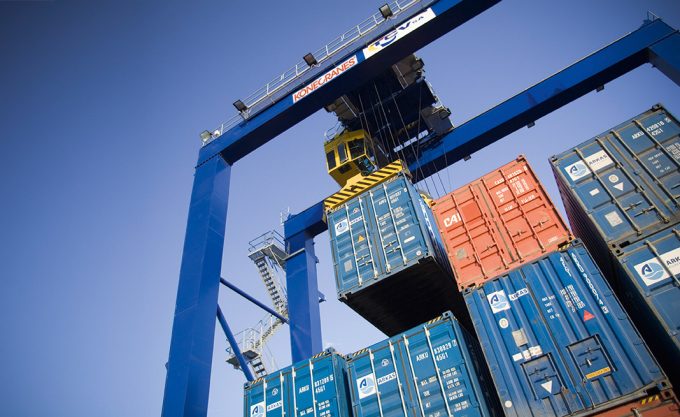Four visions of 'a brave new world' for container supply chains 25 years on
Operators of container supply chains have been urged to prepare for different future industry scenarios ...

Have you heard of the internet of container things? Well, in the not too distant future, containers could have their own IP addresses, and communicate with cargo owners, carriers and forwarders, thinks Jim Whalen, president of the Asia region for ocean freight electronic marketplace provider INTTRA.
He specifies ...

Comment on this article
Distrait
September 26, 2016 at 2:40 pmLured by the Chinese miracle, during the last 15 years, and still today, the single strategy of Main Line carriers has been economy of scale and globalisation. Still today they haven’t any other idea.
Maybe it’s time to be asking fresh questions :
– It is worth being global ?
– Who has the lead when due to few ports being able sizewise to accommodate ULCC containers, are anyway subject to pre and post carriage ?
What appears today is that freight from Shanghai to Rotterdam is a commodity driven by indexes (SCFI and others…) From the shipper point of view the most important is the short sea vessel that will take/bring his box from/in his port that are today mostly common feeders.
In short, maybe the time has come for unbranded Common Long Haul carriers held by banks or financial consortia, because it’s only about finances and strong branded regional feeders who are actually in a position to generate added value and better absorb shocks of recession in another part of the world and follow the recent trend of near shoring.
If industry big guys don’t see this soonest, forwarders will keep letting MLO dance with 2 left feet.